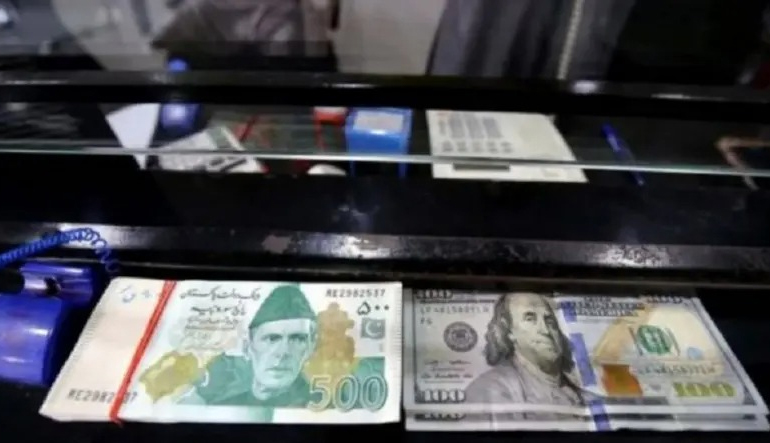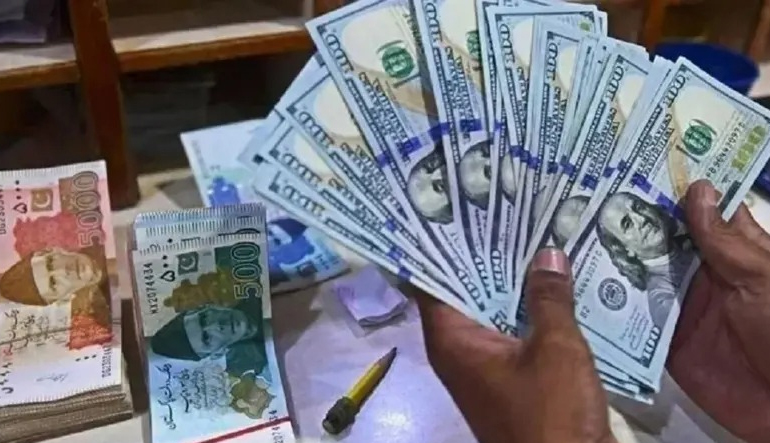Factors Driving the Surge in Remittances: Role of Ramadan, Eid, and Stricter Regulations
The surge in remittances is primarily driven by overseas Pakistanis sending dollar-based remittances to their families or as savings. These funds are transferred through banks and money exchange companies. Explaining the reasons for the increase in remittances sent in March, financial analyst Farhan Mahmood mentioned that one of the major factors is the trend of sending higher amounts during Ramadan and Eid. He further added that the stricter regulations on Hawala and Hundi, informal and illegal channels, have resulted in more dollars being sent legally to Pakistan, thus increasing legal remittances to Pakistan. He emphasized that foreign exchange coming from abroad plays a crucial role in Pakistan's economy, as it supports the current account and helps with the balance of payments. In other words, the dollars coming in help cover the deficit created by the dollars going out for imports. He noted that although dollars also come in through exports, remittances are now contributing more, and this trend seems to be continuing. As a result, it is expected that foreign exchange inflows could reach $36 billion in the financial year 2025.
 "Due to the dollar's parity in the interbank and open markets, not many people are sending money to Pakistan through informal means, which has led to an increase in remittances."
"Due to the dollar's parity in the interbank and open markets, not many people are sending money to Pakistan through informal means, which has led to an increase in remittances."
What are the reasons for the increase in remittances?
According to economist Khurram Shehzad, remittances sent by Overseas Pakistanis working in countries like Saudi Arabia, the UAE, the United States, the UK, and other nations are crucial for Pakistan's economy and have played a key role in the country’s foreign exchange reserves. He mentioned that about two-thirds of the total remittances received by Pakistan come from Pakistanis living in the Middle East. He further stated that the increase in remittances from other countries has also contributed to the overall rise in remittance growth. Former finance ministry advisor Dr. Najeeb Khakan highlighted four reasons behind this increase. According to him, one of the major factors is the larger remittances sent during Ramadan and Eid in March, a trend that typically occurs every year. He added that since there is now no difference between the exchange rates of the rupee and the dollar in both the interbank and open markets, people have more confidence in sending money through formal remittance channels. As a result, overseas Pakistanis are increasingly using legal remittances to send money back to Pakistan. Dr. Najeeb Khakan also pointed out that in recent years, a large number of Pakistani citizens have migrated abroad for employment, which has also led to an increase in economic migration and remittances. Regarding other contributing factors, Khurram Shehzad mentioned that several policy measures for remittances have also led to the rise in remittances. These measures include incentives provided to Overseas Pakistanis for sending money through banking channels for remittances. Sayed Abdul Kabir Shah, a Pakistani businessman involved in the fast-food industry in Saudi Arabia, told the that there has been a strict implementation of laws in Gulf countries requiring employees’ salaries and allowances to be sent through bank accounts rather than in cash. He said that as a result of the prohibition on cash payments, the use of informal channels like Hawala and Hundi regulations for remittances has decreased, and most people are now sending money through formal remittance channels. He also claimed that the 'Roshan Digital Accounts' facility introduced during former Prime Minister Imran Khan’s tenure has enabled overseas Pakistanis to send money via banking channels more easily.

"Due to rising inflation in Pakistan, Pakistanis living abroad are now having to send more money to their families in Pakistan."
Increase in Remittances and Criticism of Pakistan Tehreek-e-Insaf (PTI)
On the other hand, on social media in Pakistan, accounts linked to the ruling party, Pakistan Muslim League (PML-N), are presenting the rise in overseas Pakistani remittances as a failure of the PTI remittance boycott and a rebuttal to Imran Khan’s jail statement and civil disobedience call. It is worth recalling that in December 2024, former Prime Minister Imran Khan, who was imprisoned in Adiala Jail, declared the charges against him baseless and hinted at launching a civil disobedience movement. In a statement posted on the social media platform X, he said, "If our demands are not met, we will, under a movement, urge overseas Pakistanis to restrict their remittances to Pakistan and start a boycott campaign." This was part of PTI’s broader social media campaigns on remittances. However, despite Imran Khan’s call, remittance trends 2025 show that remittances have continued to increase during the current fiscal year. According to State Bank remittance data, after Imran Khan’s statement in December 2024, remittances sent by overseas Pakistanis in January 2025 were 25% higher than those in January 2024. Total remittance statistics Pakistan show that remittances received in January 2025 were around $3 billion. Since then, the monthly remittance growth has remained higher compared to the same months of the previous fiscal year, reflecting continued expatriate financial support despite political appeals for a failed remittance boycott campaign. Meanwhile, Khyber Pakhtunkhwa economic advisor, Muzzammil Aslam told the that according to data, around 3 million people have left Pakistan since 2022, contributing to the Pakistan economy through foreign earnings. According to Muzzammil Aslam, during Imran Khan’s government in 2022, remittances had touched $3 billion. He claimed that the current government has received below-average remittance inflows over the past three months. According to him, these are not “windfall” or “outstanding” numbers and that a consistent figure of $4 billion per month should be maintained. He further stated that these remittances are currently low in per capita terms, and the remittance inflows have been sluggish over the past three years, adding another dimension to the political impact on remittances. When asked about Imran Khan’s PTI remittance boycott, Muzzammil Aslam said that for the past two and a half months, the former Prime Minister has not been allowed to meet anyone, so his current stance or any new call regarding remittances is unknown. He added that overseas Pakistani remittances at this point are not based on savings but rather on necessity, as people are forced to send more money to support their families back home. A user named Junaid Sahi commented that for the past four months, PTI has been running a campaign on social media urging overseas Pakistanis not to send remittances to Pakistan, but despite this, remittance inflows have continued to rise. Another user, Saad Qaiser, said the data clearly shows that overseas Pakistanis have refused to become part of PTI’s boycott remittances campaign, underscoring the limits of political influence over economic behavior.

 State Bank Governor says remittances are expected to be 38 billion during the current fiscal year
State Bank Governor says remittances are expected to be 38 billion during the current fiscal year